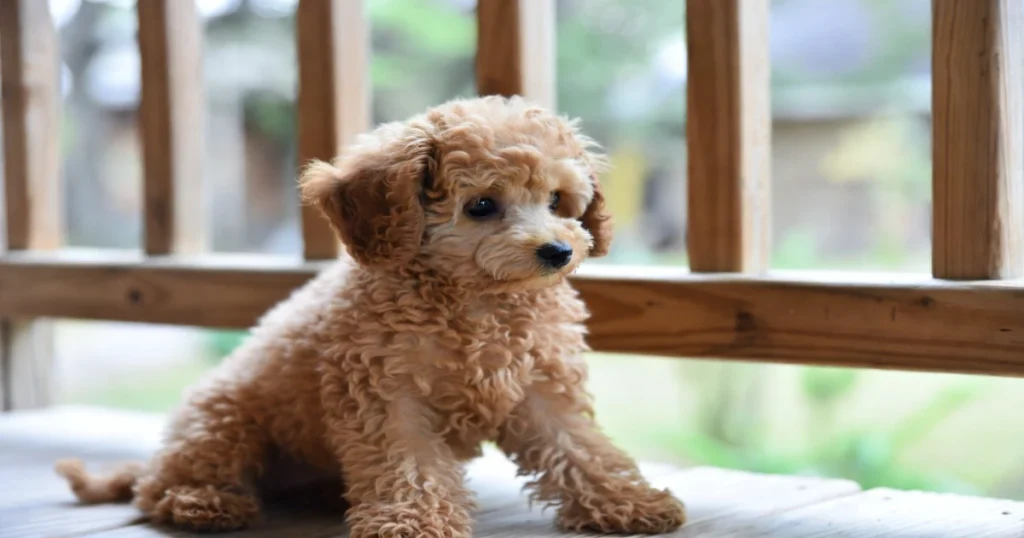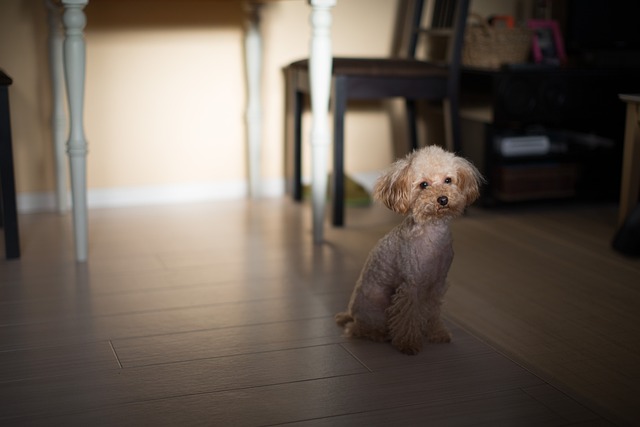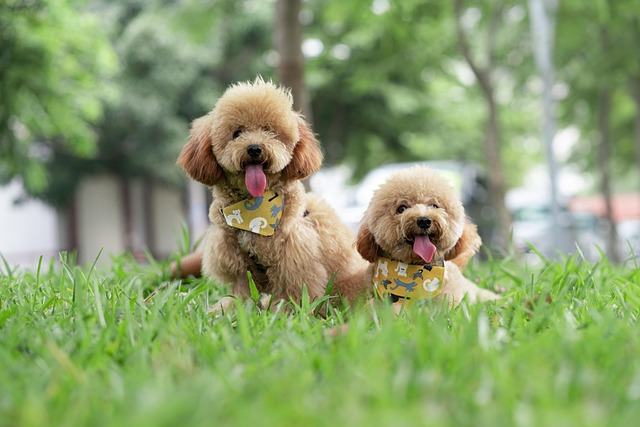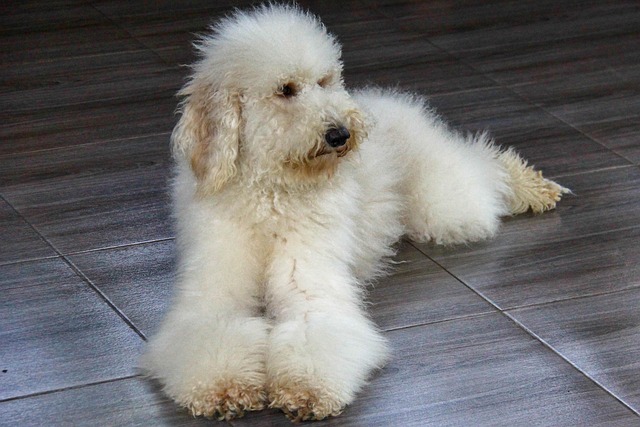Teacup poodles in Louisiana are small, friendly dogs known for their playful nature and curly coats. Several breeders throughout the state sell teacup poodles of various colors and sizes. These canines tend to do well in smaller living spaces and are favored by families and singles alike.
Locating a responsible breeder or adoption center helps guarantee a robust companion. Our main body outlines care tips, breeder options, and what to expect.
The Teacup Myth
They all listen to ‘teacup poodle’ and imagine that somehow it’s a special breed, separate from the other poodles. In fact, “teacup” is neither an actual size nor a formal breed classification. It’s a word that certain breeders and owners apply to teeny tiny poodles, frequently exceedingly tinier than the Toy Poodle — the tiniest ‘legal’ size acknowledged by the kennel clubs.
The name is deceiving because there is no worldwide definition of what qualifies a poodle as a ‘teacup.’ Certain breeders might apply ‘teacup’ to promote dogs that fall short of healthy size standards, and therefore not all so-called teacups are actually that tiny.

Breed standards are important. The American Kennel Club and other groups acknowledge Standard, Miniature and Toy Poodles. There is no ‘teacup’ class. Which is why, when someone purchases a teacup poodle, they’re sometimes getting a Toy Poodle, only one that’s been bred for an even smaller size.
Some breeders do this by breeding down the tiniest pups in a litter, which can transfer health issues associated with very small stature. This is not merely a cosmetic issue. The drive to breed tinier and tinier poodles poses ethical and pragmatic issues.
Health is a huge concern for teacup poodles. A lot of the health risks aren’t clear right away but can cause a lifetime or more of trouble. Some common health problems linked to tiny size include:
- Bone and joint problems like Legg-Calve-Perthes disease and luxating patellas
- Blood clotting disorders like von Willebrand’s disease
- Fragile bones that break more easily than larger poodles
- Problems with blood sugar levels, leading to hypoglycemia
- Dental problems resulting from misaligned, crowded teeth in a small jaw
- Heart and respiratory problems
- Higher risk during surgery or anesthesia
Due to these threats, teacup poodles have a life expectancy of approximately 12-15 years, which is on-par with other small breeds but potentially with more healthcare requirements. The teacup myth that teacup poodles are 100% hypoallergenic is false.
Although poodles tend to be less allergenic, no dog is truly hypoallergenic and allergies are individual. Future owners should be aware that not all breeders are responsible. Others concentrate exclusively on breeding smaller dogs — even if it means compromising health or temperament.
Good breeders do their best to maintain healthy, well adjusted poodles, big or small. So, when hunting for a poodle, pay attention to the dog’s health, temperament and the breeder’s credibility, not size or adorable marketing lingo.
Louisiana Breeders

Selecting a teacup poodle in Louisiana involves understanding where to locate breeders committed to health, ethics, and transparency. A lot of breeders in this state are based on experience and breed knowledge. We’ve had some in the field since the early 90s, some that only started breeding professionally in 2011.
These breeders tend to concentrate on toy and tiny toy poodles and many register their dogs with places like AKC and CKC. They each have their own take on socialization, health, and transparency and it’s important for buyers to scrutinize each breeder’s approach.
1. Ethical Markers
A responsible breeder maintains cleanliness—seek out neat kennels, fresh water and well-groomed puppies. Puppies should behave inquisitive and amicable, evidencing familiarity with humans.
A few breeders provide references from previous purchasers. This assists purchasers find out if others were satisfied with their pup and the breeder’s assistance. Breeders who affiliate with poodle clubs or collaborate with organizations that advocate for ethical practices demonstrate legitimate dedication to improvement.
Stay away from any breeder who puts more concern in profit than the dogs’ lives, or who operate massive puppy mills with minimal supervision.
2. Health Clearances
ALWAYS request health clearances on both parents. What that means is the breeder screens for issues like hip dysplasia or eye diseases, which poodles are prone to. Certain Louisiana breeders screen for hereditary problems prior to breeding and that decision keeps puppies healthier over the long term.
Good breeders give you paperwork from vets regarding these health checks. It is only by knowing what health problems can affect teacup poodles can buyers make an informed choice. It’s savvy to be informed of these dangers prior to welcoming a pup.
3. Visiting Protocols
Meet breeders in person whenever possible. See where puppies reside and how they socialize with humans and other pups. Many breeders are by appointment only so think in advance.
When you visit, find out if the puppies are cuddle bugs. This demonstrates they are socialized. Inquire if you are able to meet both puppies and parents. Breeders who will answer everything and allow you to see their facility are far more trustworthy.
4. Contract Review
Read the deal through. Ensure it includes health guarantees and terms of what if you can’t keep the puppy. Both sides ought to know their business.
Seek out agreements that prioritize the puppy’s well-being. Some breeders throw in hefty guarantees of lifetime support.

5. Owner Support
See what sort of after-sale service a breeder provides. They provide guides and starter kits for new owners.
Follow up tips and Q&A’s ARE a caring breeder. Select breeders who will check on you, and want the puppy to succeed.
Bayou State Care

Caring for tiny toy poodle puppies in Louisiana involves managing their needs in a humid subtropical climate, considering factors like heat stress, coat care, and health monitoring. This ensures your tiny toy poodles remain happy and healthy in their unique environment.
Climate
Louisiana’s humidity is not only rough on your skin, but it mats up teacup poodles. Their coats can hold moisture, leaving them susceptible to fungal infections.
- Keep teacup poodles indoors during midday heat.
- Provide fresh, cool water at all times.
- Use cooling mats or fans in their resting area.
- Walk pups in shaded or grassy areas, NOT hot concrete!
- Maintain regular grooming to help the skin breathe.
Symptoms of heat exhaustion in teacup poodles are excessive drooling, panting and lethargy. Small breeds are even more at risk because their bodies warm quickly.
Exercise early in the morning or later in the evening when it is cooler. This easy tip keeps you from getting too hot.
Grooming
Consistent grooming routine is essential for teacup poodles. This breed’s curly coat can mat quickly, particularly in humid conditions.
Use a slicker brush to untangle fur and a fine-toothed comb to check for mats near the skin. These are great tools for their soft, dense curls and aid in minimal shedding.
Baths every 3–4 weeks maintain the coat clean without desiccating the skin. Hair trims around the eyes and paws keep out dirt build-up. Ear checks are essential as well, because poodles are susceptible to wax and infection.
Pro groomers are a lifesaver for busy owners or first-timers. They know how to work through tough mats, trim sensitive areas, and detect initial signs of irritation.
Nutrition
- Select a premium, balanced diet with protein, healthy fats and micronutrients for mini-sized breeds.
- Stay away from fillers or artificial additives, which can annoy digestion.
- Offer small, frequent meals to keep blood sugar stable.
- Offer clean fresh water always to hydrate, especially in the heat.
Make sure to control portion size so your teacup poodle doesn’t become overweight. Obesity is an issue in Louisiana’s population as well, with local health consequences in both humans and dogs.
Establish consistent feeding periods to aid with digestion and energy. For special needs, work with your vet for a plan that fits your dog’s health and activity.
Exercise
Short walks, indoor fetch, and gentle tug-of-war provide these dogs sufficient activity without danger. Teacup poodles thrive on 15–20 minutes worth of physical play, per day.
Training games and puzzle toys help keep their minds sharp. These dogs live for new tricks and commands!
So balance play with rest, these puppies wear out quick. Overexertion will cause injury or you will overheat.
Daily exercise keeps teacup poodles stress-free, fit and happy.
Full Grown Reality
Teacup poodles Louisiana, and other places, have miniature bodies and unique tempers. When fully grown, these dogs typically fall in the 1.4–2.7 kg (3–6 lb) range. A few can weigh as little as 1.8 kilograms (4 pounds), but they seldom tip the scales above 2.7 kilograms, with a shoulder height frequently under 23 cm (9 inches).
Because of this, a full-grown teacup poodle could resemble a puppy even in their golden years, which can astonish those accustomed to bigger breeds or even regular toy poodles. This size isn’t just aesthetic—it defines their everyday grooming and healthcare, and how they integrate into a household.
Teacup poodles can have different growth rates. They typically reach adult size by 8 to 10 months, though some can continue filling out up until their first birthday. Genetics have a lot to do with it—smaller larger parents typically yield smaller pups, but it’s not completely precise.
Diet is critical. Feeding a teacup poodle a healthy diet will prevent them from being undersized and stunted, or obese. Overfeeding can put strain on their tiny bodies, while underfeeding leaves them frail. That’s why a lot of breeders and vets suggest scheduled meals and check-ups throughout the first year.
You need to be aware that the growth spurts can be brief and not as obvious as in larger dogs. For instance, a teacup poodle might just add a few hundred grams between 6 months and one year.
Size and care expectations should remain rooted. Just because they’re small doesn’t make them “low maintenance.” Teacup poodles are susceptible to Legg-Calve-Perthes (a hip joint condition), luxating patellas (slippery knee caps), and von Willebrand’s disease (a bleeding disorder).
Being tiny, even minor tumbles or jostling can cause harm. Owners need to ensure their home is safe, with no flights of stairs or small chaff pieces. Regular vet visits are essential, as is maintaining dental care and grooming. They live 12 to 15 years, so it’s a commitment.
Teacup poodles are a combination. They’re intelligent, people-pleasers who pick up on things quickly, so they’re great for training and mind games. Some are shy and like hush-hush homes, others love new faces.
These characteristics can make them mix well into many households, but owners should be prepared to dedicate time and attention daily.
Localized Health
Teacup poodles, including tiny toy poodle puppies, while cute for their minuscule stature, encounter unique health issues that require diligent handling. Their smaller size makes them more susceptible to some health issues than their larger canine counterparts. Genetics, responsible breeding, and attentive care significantly impact the health of these dogs throughout their lives.
Common Ailments
Teacup poodles experience tracheal collapse, heart disease, and respiratory problems. Their tiny bones can cause joint issues including luxating patellas and Legg-Calve-Perthes. Dental diseases are prevalent, since their jaws are small and teeth can crowd together. Some might inherit blood-clotting problems like von Willebrand’s.
These health issues are more likely if bad breeding comes into play, as breeders care more about size than health. Limping, difficulty breathing, coughing and loss of appetite are all very early signs to look out for. If you experience sudden weakness, tremors or gum discoloration, these can indicate more serious issues such as hypoglycemia or heart problems.
Owners who catch these in the early stages can get their dogs to a vet before issues escalate. Responsible care—good nutrition, regular check-ups, and gentle handling—goes a long way toward reducing these risks.
Vet Selection
It’s better to go with a vet that’s familiar with the little guys, little guys like teacup poodles. These vets are more acquainted with their specific needs, like screening for heart murmurs or early tooth decay. Trusting the vet aids, as teacup poodles thrive on continued health monitoring and prevention.
As an owner, it’s important to have routine wellness visits – at least twice a year – to capture changes as early as possible. A good vet provides breed-specific care, from safe anesthesia for tiny pups to nutrition and activity recommendations.
Prevention
Prevention is the name of the game for teacup poodles. Vaccinations and parasite control keep them safe from most common illnesses. Dental care–daily brushing and check-ups–can help avoid the tooth and gum problems that frequently plague this breed.

Owners should remain current on screenings for inherited diseases and keep an eye out for joint or blood disorder symptoms. A well balanced, protein-full, multiple small meals throughout the day kind of diet prevents hypoglycemia and promotes long term health. Your workout should be light so as not to hurt yourself.
Ownership Costs
There are upfront and ongoing costs associated with owning a tiny toy poodle puppy in Louisiana, or anywhere else. The price of the puppy is just the beginning. Purchasers may spend more for rare hues, such as chocolate or merle toy poodles, or specific characteristics. Health certifications and strong pedigrees can significantly increase the price.
When considering a teacup poodle, it’s helpful to consider the entire expense list — not just the puppy price. Here is a summary of the major costs in year 1 and those which are ongoing each year.
| Expense | Initial Cost (USD) | Ongoing (USD/year) |
|---|---|---|
| Puppy purchase | $1,200–$3,500+ | – |
| Shipping (if needed) | $450–$550 | – |
| Deposit to hold puppy | $400–$500 | – |
| Extra color/trait fee | $300+ | – |
| Veterinary care | – | $200–$500 |
| Dog food | – | $240–$600 |
| Grooming | – | $600–$1,300 |
| Training classes | $50–$300 | – |
Recurring costs can be a real burden. Food expenses vary by brand and type, but the majority of owners spend $20-$50/month. Additionally, since tiny toy poodles are small, they eat less than larger breeds, which can be a cost-saving factor.
Still, quality dog food is typically required to keep them healthy — particularly considering their size and potential health issues. Grooming is another significant cost. Tiny toy poodles require periodic trims and upkeep. Grooming can run $50-$100 each time and is necessary every 4-6 weeks, leading to as many as 13 visits a year.
That’s as many as 13 visits a year. Owners can learn to do some grooming at home, but the majority still have a pro give their dog a haircut and trim his nails. Vet care is a necessity for any dog. Annual costs can be $200-$500, which takes into account vaccines, check-ups and some standard treatments.
Tiny toy poodles have unique health concerns — such as dental issues and fragile bones. Owners need to plan for emergencies or chronic conditions, which can arise even with optimal care. Pet insurance is an option, but it increases the monthly costs.
There’s training, too. Basic or more advanced courses can run anywhere from $50 to $300. Early socialization and obedience training keep behavior problems at bay. Many owners take private lessons or attend group classes, according to their requirements and the dog’s personality.
To maintain a teacup poodle is a lifetime, and occasionally expensive, responsibility. Working all these costs into your budget planning helps owners avoid surprise, later.
Conclusion
Teacup poodles receive a ton of attention in Louisiana. Most adore their tiny stature and feisty appeal. Breeders in the state grind to raise pups that suit local requirements. Real teacup poodles require consistent care, not just adorable snapshots. Most adult dogs weigh more than initially assumed. Health remains paramount, with local veterinarians aware of what is most effective in the bayou warmth.
Food, vet trips and grooming add up quick. People who know, love these little dogs. It behooves you to verify breeders and speak to nearby owners. To stay smart, query, get the real story, keep your poodle happy and safe. Need additional advice or assistance? Contact me for straightforward counsel and fresh inspiration.
Frequently Asked Questions
Are teacup poodles recognized as an official breed in Louisiana?
Teacup poodles, often considered tiny toy poodles, are not recognized as a separate breed by major kennels; they are simply toy poodles bred down in size.
How can I find a reputable teacup poodle breeder in Louisiana?
Seek out breeders of tiny toy poodle puppies who focus on health, offer vet records, and adhere to ethical practices for quality poodles.
What special care do teacup poodles need in Louisiana’s climate?
Teacup poodles, including tiny toy poodles, must be safely guarded from heat and humidity. Always offer fresh water, shade, and refrain from outdoor exercise during the hottest parts of the day.
How big do teacup poodles get when fully grown?
A full grown teacup poodle, often referred to as tiny toy poodles, usually weighs under 2.7 kg and is around 8 inches tall, remaining small for their entire lives.
What health concerns should Louisiana owners watch for?
Teacup poodles, including tiny toy poodle puppies, are susceptible to hypoglycemia, brittle bones, and tooth decay, making routine checkups with your veterinarian essential for early detection and treatment.
Are teacup poodles expensive to own in Louisiana?
Yes. Up-front expenses for tiny toy poodle puppies, vet visits, top-of-the-line food, and grooming can all really add up. Always plan for emergency veterinary expenses for a teacup poodle.
Can teacup poodles adapt well to life in Louisiana?
Well-cared-for tiny toy poodle puppies thrive indoors, requiring special attention due to their tiny stature, especially in our hot hot-hot weather.






